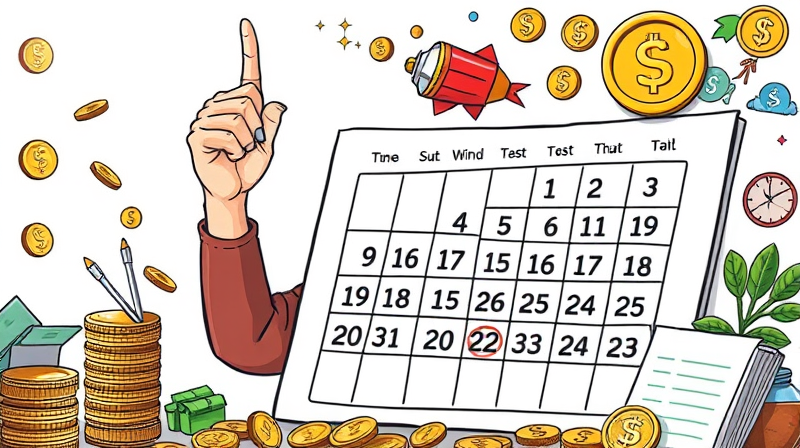Embarking on the journey to conquer debt can feel overwhelming, yet with a clear plan and steadfast determination, essential strategies and methods for handling debt come into focus. This article offers a comprehensive guide to understanding debt management, practical payment techniques, and ways to build lasting financial resilience. By following these steps, you will gain control over your finances and set yourself on a path toward freedom.
Effective debt management not only improves your credit score but also reduces stress and opens doors to future opportunities, such as homeownership or business ventures. A structured approach empowers you to transform outstanding balances from burdens into scheduled milestones, making each payment a triumph toward your ultimate goals.
Understanding Debt Management
Debt management involves creating realistic approaches to reduce liabilities and enhance your credit health. Properly managed, debt can be a lever for growth, while mismanaged liabilities can become a burden. Recognizing various debt types is critical:
Good debt, like mortgages or student loans, often finances assets that appreciate or boost earning potential. Meanwhile, bad debt typically involves high-interest credit cards or nondurable consumption that high levels of debt or missed payments only exacerbate financial stress.
Unresolved debts can lead to penalties, increased interest rates, and damage to your credit score. Improving your score enhances the ability to secure favorable loan terms or insurance rates, thereby fostering long-term financial stability.
Assessing and Organizing Your Debt
Before tackling payments, build clarity around your obligations by assembling key information. Begin with an inventory to identify where you stand and which debts demand urgent attention:
- comprehensive list including creditor, amount, dates
- Current interest rates and minimum monthly payments
- Late fees, penalties, or delinquency statuses
Next, evaluate your financial position by calculating your net worth—subtract total liabilities from total assets—and document your monthly cash flow, comparing income against essential expenses such as housing, utilities, and groceries. This analysis reveals areas where you can trim spending and redirect resources toward debt reduction more aggressively.
Effective Debt Payment Strategies
Two of the most widely embraced methods for debt elimination are the Avalanche and Snowball approaches, each offering distinct advantages based on your situation:
- Debt Avalanche Method: Allocate any extra funds to the highest-interest balances first, maintaining minimum payments on all other accounts. This method reduces the amount of accrued interest over time, often leading to quicker overall payoff.
- Debt Snowball Method: Target the smallest balances first for rapid completions that deliver quick psychological wins and motivation boost. After clearing a small debt, roll its payment into the next smallest, creating a cascade of achievements.
While the Avalanche method is mathematically optimal for minimizing total cost, the Snowball method can sustain momentum with frequent successes. Regardless of your choice, always ensure you make minimum payments on all debts to prevent late fees and credit damage. For consistent execution, consider automating payments to eliminate the risk of missed deadlines.
Additional Tactics for Streamlining Debts
Beyond payment prioritization, several tactics can consolidate and simplify your repayment journey:
- Debt consolidation loans or balance transfers to secure lower interest rates and unify monthly bills.
- Direct negotiation with creditors to discuss lower rates, waived fees, or modified payment plans.
- Enrolling in a Debt Management Plan (DMP) for structured support from credit counseling agencies, which negotiate terms on your behalf.
Consolidation can deliver immediate relief by reducing your interest burden, but be cautious of transfer fees and promotional rate expirations. Negotiate proactively, presenting evidence of hardship or responsible budgeting to strengthen your case with lenders.
Leveraging Assets and Safeguarding Your Progress
In select scenarios, using assets like home equity via HELOCs or tapping retirement savings may help accelerate debt elimination. Such strategies carry potential downsides, including the risk of foreclosure or future income shortfalls. Always weigh the benefit of a lower interest rate against the possibility of asset forfeiture.
Concurrently, build a contingency fund to act as a financial cushion. Even a modest savings reserve can absorb unexpected expenses and prevent reliance on credit lines, enabling you to maintain focus on planned debt reduction without detours.
Building an emergency savings buffer prevents recurring reliance on new debt, shielding progress from unexpected expenses and ensuring your repayment plan remains uninterrupted.
Behavioral and Psychological Approaches
Debt can trigger stress and impact your mental well-being. Maintaining motivation and accountability is crucial for staying the course:
- Use budgeting apps, journals, or spreadsheets to track payments, upcoming balances, and overall progress.
- Celebrate milestones—such as fully paying off a card or loan—to reinforce positive behavior.
- Share your journey with a friend, family member, or coach to foster encouragement and external accountability.
Regular reflection on how each payment moves you closer to your goals can transform debt repayment from a chore into a rewarding personal achievement, reinforcing the discipline required to stay debt-free.
Knowing When to Seek Professional Help
Even with the best intentions, some debt burdens become overwhelming. Warning signs to consult a professional include rising delinquencies, garnishments, or the inability to meet basic living expenses. Options to consider:
- Nonprofit credit counseling agencies that offer free budgeting advice and may set up a DMP.
- Licensed financial advisors who can integrate debt reduction into broader wealth-building strategies.
- Debt settlement firms—though typically a last resort due to potential credit impacts and fees.
Professional guidance can be invaluable, but always vet providers, review fee structures, and confirm accreditation to avoid scams or predatory practices.
Avoiding Pitfalls and Planning for Long-Term Success
Debt management is not solely about payoff; it’s about sustaining financial health over a lifetime. Key pitfalls to avoid include:
- Reopening new credit accounts or increasing balances on existing lines unchecked.
- Overlooking hidden fees in consolidation programs or promotional offers.
- Draining emergency or retirement funds, jeopardizing your future security.
Instead, integrate your repayment strategies into a comprehensive financial plan that includes retirement contributions, investment goals, and insurance protection. Review your net worth and cash flow at regular intervals, and adjust your roadmap as life circumstances evolve—such as job changes, family growth, or market fluctuations.
Summary of Debt Management Methods
Mastering debt management demands intentional effort, consistent progress checks, and the psychological resilience to overcome setbacks. Each payment, negotiation, or restructured plan lays a brick in the foundation of financial wellness, empowering you to pursue new opportunities with confidence and security. Start today by selecting the method that aligns with your goals, setting clear milestones, and celebrating each success on your path to lasting financial freedom and well-being.
Take control of your financial destiny now—commit to your plan, seek support when needed, and watch as each step transforms your future into one defined by choice rather than obligation.
References
- https://www.investopedia.com/articles/pf/12/good-debt-bad-debt.asp
- https://getremynt.com/blog/debt-management-101-a-comprehensive-guide
- https://www.equifax.com/personal/education/debt-management/
- https://www.oneadvanced.com/news-and-opinion/guide-to-debt-management/
- https://point.com/blog/how-to-manage-debt-effectively
- https://dfpi.ca.gov/news/insights/three-steps-to-managing-and-getting-out-of-debt/
- https://www.investopedia.com/terms/f/financial_plan.asp
- https://smartasset.com/debt/strategies-for-properly-managing-debt










